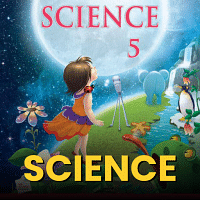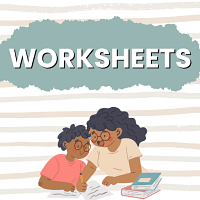Class 5 Exam > Class 5 Questions > Shortage of food and water can result in aa)t...
Start Learning for Free
Shortage of food and water can result in a
- a)tsunami
- b)flood
- c)famine
- d)drought
Correct answer is option 'C'. Can you explain this answer?
| FREE This question is part of | Download PDF Attempt this Test |
Most Upvoted Answer
Shortage of food and water can result in aa)tsunamib)floodc)famined)dr...
**Explanation:**
**Shortage of food and water can result in a famine.**
Famine is a severe shortage of food that leads to widespread hunger and starvation. It occurs when the available food supply is insufficient to meet the needs of the population. This can be caused by several factors, including natural disasters, war, economic instability, and poor agricultural practices.
**Natural Disasters**
Natural disasters such as droughts, floods, and tsunamis can significantly impact food production and access to clean water. Droughts, for example, can lead to a lack of water for irrigation, resulting in crop failure and reduced food production. Floods can destroy crops, contaminate water sources, and displace communities, making it difficult for people to access food and clean water. Tsunamis can cause similar devastation, wiping out entire coastal communities and disrupting food production and distribution systems.
**War and Conflict**
War and conflict can also contribute to food shortages and famines. During times of war, agricultural infrastructure may be destroyed, making it difficult for farmers to grow crops and raise livestock. Conflict can also disrupt transportation networks, making it challenging to distribute food to affected areas. Additionally, populations may be forced to flee their homes, leaving behind their sources of food and water.
**Economic Instability**
Economic instability, such as high levels of poverty and unemployment, can also contribute to food shortages. When people are unable to afford nutritious food, they may suffer from malnutrition and other health issues. Economic instability can also lead to political instability, further exacerbating food shortages and increasing the risk of famine.
**Poor Agricultural Practices**
Inadequate agricultural practices can also contribute to food shortages. For example, over-reliance on a single crop can make communities vulnerable to crop failure if disease or pests affect that crop. Lack of access to modern farming techniques and technologies can also limit food production. Additionally, poor land management practices, such as overgrazing or deforestation, can degrade soil quality and reduce agricultural productivity.
In conclusion, a shortage of food and water can result in a famine. Natural disasters, war and conflict, economic instability, and poor agricultural practices can all contribute to food shortages and the widespread hunger and starvation characteristic of a famine.
**Shortage of food and water can result in a famine.**
Famine is a severe shortage of food that leads to widespread hunger and starvation. It occurs when the available food supply is insufficient to meet the needs of the population. This can be caused by several factors, including natural disasters, war, economic instability, and poor agricultural practices.
**Natural Disasters**
Natural disasters such as droughts, floods, and tsunamis can significantly impact food production and access to clean water. Droughts, for example, can lead to a lack of water for irrigation, resulting in crop failure and reduced food production. Floods can destroy crops, contaminate water sources, and displace communities, making it difficult for people to access food and clean water. Tsunamis can cause similar devastation, wiping out entire coastal communities and disrupting food production and distribution systems.
**War and Conflict**
War and conflict can also contribute to food shortages and famines. During times of war, agricultural infrastructure may be destroyed, making it difficult for farmers to grow crops and raise livestock. Conflict can also disrupt transportation networks, making it challenging to distribute food to affected areas. Additionally, populations may be forced to flee their homes, leaving behind their sources of food and water.
**Economic Instability**
Economic instability, such as high levels of poverty and unemployment, can also contribute to food shortages. When people are unable to afford nutritious food, they may suffer from malnutrition and other health issues. Economic instability can also lead to political instability, further exacerbating food shortages and increasing the risk of famine.
**Poor Agricultural Practices**
Inadequate agricultural practices can also contribute to food shortages. For example, over-reliance on a single crop can make communities vulnerable to crop failure if disease or pests affect that crop. Lack of access to modern farming techniques and technologies can also limit food production. Additionally, poor land management practices, such as overgrazing or deforestation, can degrade soil quality and reduce agricultural productivity.
In conclusion, a shortage of food and water can result in a famine. Natural disasters, war and conflict, economic instability, and poor agricultural practices can all contribute to food shortages and the widespread hunger and starvation characteristic of a famine.
Free Test
FREE
| Start Free Test |
Community Answer
Shortage of food and water can result in aa)tsunamib)floodc)famined)dr...
Shortage of food and water can result in a (c) famine.
Famine happens when there isn't enough food for a lot of people in an area. It can occur when crops don't grow well or when people can't get enough food and water. During a famine, many people suffer from hunger and can even starve. It's a very serious situation that happens when there's a big scarcity of food and water, and it can cause a lot of suffering and hardship for the affected population.
Attention Class 5 Students!
To make sure you are not studying endlessly, EduRev has designed Class 5 study material, with Structured Courses, Videos, & Test Series. Plus get personalized analysis, doubt solving and improvement plans to achieve a great score in Class 5.

|
Explore Courses for Class 5 exam
|

|
Similar Class 5 Doubts
Shortage of food and water can result in aa)tsunamib)floodc)famined)droughtCorrect answer is option 'C'. Can you explain this answer?
Question Description
Shortage of food and water can result in aa)tsunamib)floodc)famined)droughtCorrect answer is option 'C'. Can you explain this answer? for Class 5 2024 is part of Class 5 preparation. The Question and answers have been prepared according to the Class 5 exam syllabus. Information about Shortage of food and water can result in aa)tsunamib)floodc)famined)droughtCorrect answer is option 'C'. Can you explain this answer? covers all topics & solutions for Class 5 2024 Exam. Find important definitions, questions, meanings, examples, exercises and tests below for Shortage of food and water can result in aa)tsunamib)floodc)famined)droughtCorrect answer is option 'C'. Can you explain this answer?.
Shortage of food and water can result in aa)tsunamib)floodc)famined)droughtCorrect answer is option 'C'. Can you explain this answer? for Class 5 2024 is part of Class 5 preparation. The Question and answers have been prepared according to the Class 5 exam syllabus. Information about Shortage of food and water can result in aa)tsunamib)floodc)famined)droughtCorrect answer is option 'C'. Can you explain this answer? covers all topics & solutions for Class 5 2024 Exam. Find important definitions, questions, meanings, examples, exercises and tests below for Shortage of food and water can result in aa)tsunamib)floodc)famined)droughtCorrect answer is option 'C'. Can you explain this answer?.
Solutions for Shortage of food and water can result in aa)tsunamib)floodc)famined)droughtCorrect answer is option 'C'. Can you explain this answer? in English & in Hindi are available as part of our courses for Class 5.
Download more important topics, notes, lectures and mock test series for Class 5 Exam by signing up for free.
Here you can find the meaning of Shortage of food and water can result in aa)tsunamib)floodc)famined)droughtCorrect answer is option 'C'. Can you explain this answer? defined & explained in the simplest way possible. Besides giving the explanation of
Shortage of food and water can result in aa)tsunamib)floodc)famined)droughtCorrect answer is option 'C'. Can you explain this answer?, a detailed solution for Shortage of food and water can result in aa)tsunamib)floodc)famined)droughtCorrect answer is option 'C'. Can you explain this answer? has been provided alongside types of Shortage of food and water can result in aa)tsunamib)floodc)famined)droughtCorrect answer is option 'C'. Can you explain this answer? theory, EduRev gives you an
ample number of questions to practice Shortage of food and water can result in aa)tsunamib)floodc)famined)droughtCorrect answer is option 'C'. Can you explain this answer? tests, examples and also practice Class 5 tests.

|
Explore Courses for Class 5 exam
|

|
Signup for Free!
Signup to see your scores go up within 7 days! Learn & Practice with 1000+ FREE Notes, Videos & Tests.
























